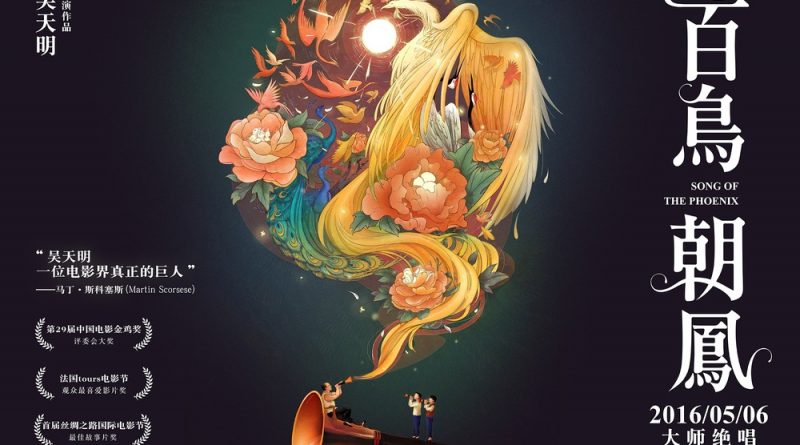A Glorious Resistance: The Power of Social Media in Modern China
Lately, debates about social media have turned slightly sour, so I thought perhaps an alternative story from the other side of the world might spread a little freshness.
Ever since WeChat (the major communication App used in China) was launched in 2011 by Tencent, users of Weibo (micro blog, a functional combination of Facebook and Twitter) dropped a significant number. While the ‘Moments’ function (similar to Facebook updates) on WeChat is now commonly flooded with selfies and foodies; Weibo, to some extent, remains a special space for public justice. Although the ever watchful ‘red light’ remains strong up top, Weibo has been the main site for active citizens to expose social injustice, generate public debates and discussions – all in the hope of achieving a more just society through the ‘people power’.
Indeed, one can only update so many selfies and foodies; when social media becomes an invisible gaze that is monitoring a nation which worships ‘face values’, whenever any public debate that concerns justice and morality appears on Weibo, the selfies and foodies on WeChat Moments have to be put in pause; so that we can use this ultimate self-branding space to save a little face, to join in the discussion about social justice, and to brand ourselves as a civilised citizen through sharing articles on any domestic injustice stories.
Encouraging examples are not unfamiliar within the Chinese context, many cases have demonstrated the power of social media, and how the ‘people power’ can in fact intervene into investigations, moral corrections, scandal exposures effectively. It appears as it has now become a consciousness; most citizens who use both of these social media feel the obligation toward certain degree of social responsibility. One good example is the practice of exposing any child trafficking suspicions. The crime of child tracking is a major problem in current Chinese society. Children are often stolen off the streets, and to be forced into begging. What active citizens have been doing is to take pictures of child beggars if they appear to be like stolen children, to share these pictures on social media, in a hope to reach their parents through the magic of web travel. Several successful stories have occurred, and some children in fact did manage to return to their family at the end through these practices. Other examples include exposing problematic medicines and food, incidents of fraud, domestic violence at school and many more.
A recent artistic example can perhaps add to the highlights. The monopoly of Hollywood and domestic blockbusters at local cinema chains has made the exhibition of indigenously produced pictures difficult. Most of the popular time slots are occupied by major productions. In order to maximise their profits, cinema chains often give very little chance to alternative pictures to be exhibited. While relying on the change of policy is temporarily hopeless, many film producers have been trying to find alternative ways to have their films shown: to tour around universities, to enter international film festivals in a hope to gain more awareness outside, or even to circulate their works on Internet.
Still, to many filmmakers, their dream is to make it to the ‘people’s silver screen’. A famous Chinese director WU Tianming passed away in 2014 March, leaving his final work Song of the Phoenix (2013) behind. His producer FANG Li has been trying very hard in order to have the master’s last work distributed and exhibited. However, cinema chains were only interested in supporting blockbuster movies, and paid very little attention to a film which has more artistic and philosophical ambition than pure entertainment. Certainly, the lack of a mature arthouse cinema culture and a backward cinema rating system do not help toward this case in any way. Since Song of the Phoenix was released in May 6, it has been given awkward time slots, and its box-office performance suffered a great deal. Out of desperation, producer Fang gambled his last hope on social media, broadcasting a video campaign on Weibo, to demand a better and fairer screening schedule.
However, this was not a usual campaign, producer Fang went down on his knees and begged. On one’s knees is a big deal in Chinese culture, it is a gesture to sacrifice one’s dignity and pride. Once this video was released on Weibo, it received a national attention and sympathy. Circulations of the video and snapshots began to appear on both Weibo and WeChat, news articles then also followed. Involvements and supports from celebrities boosted this topic to its peak, which forced many cinema chains to join in and to revise their screening schedule.
From hardly anyone knowing about this film, to now everyone is talking about this film – and it only took one day. The most recent reports reveal that Song of the Phoenix has risen to top ten, and the film is now breaking even.
Indeed, there is always the bright red light up top in terms of censorship, but to take that for granted and to ignore the glorious battles on the ground in our research will be a mistake. It is an exciting era in Chinese social media. An article might be taken down due to its sensitivity, but shortly, a new one will appear and be shared again. This space is full of possibilities to invent miracles and to make changes in society, if used sensibly with integrity!
A wise man once reflected and I shall paraphrase loosely: the Internet era that we are living in now is full of possibilities to practice democracy, and we should value it and make it into full use before this open space is being tighten up again, which tendencies of doing so now slowly appear. We don’t want the future generations to laugh at us when they look back in history, about our stupidity, and how we fail to treasure the freedom that we have.
Hiu Man Chan is a PhD candidate at JOMEC, and columnist for the UK-Chinese Times. Twitter: @H_onfilm



